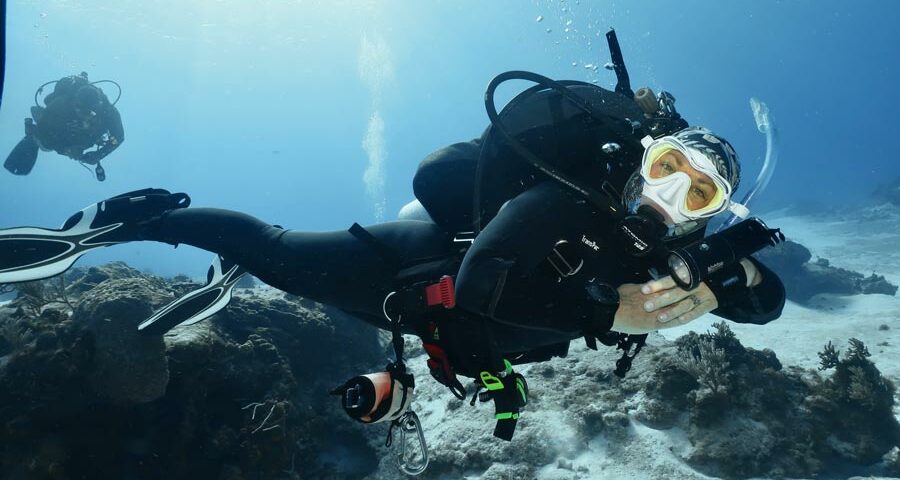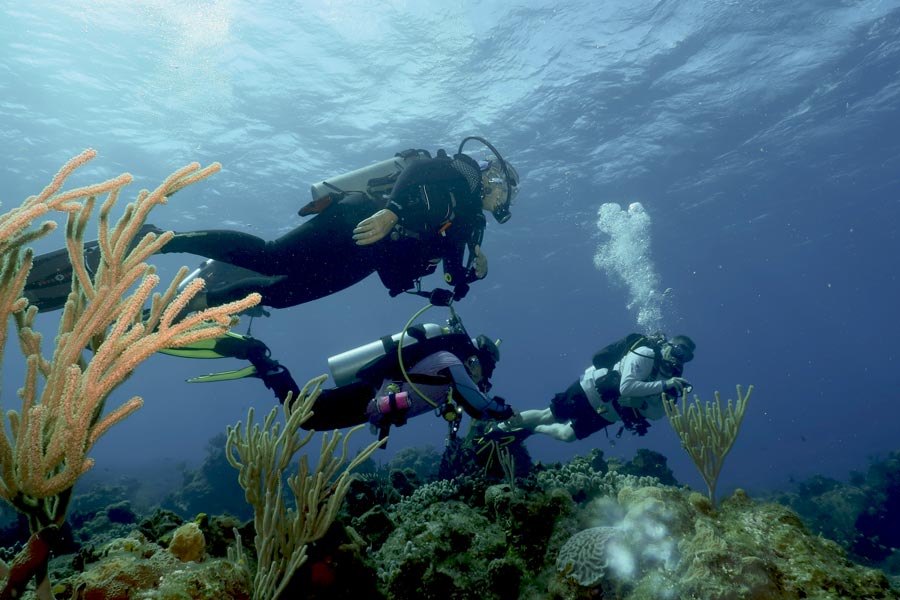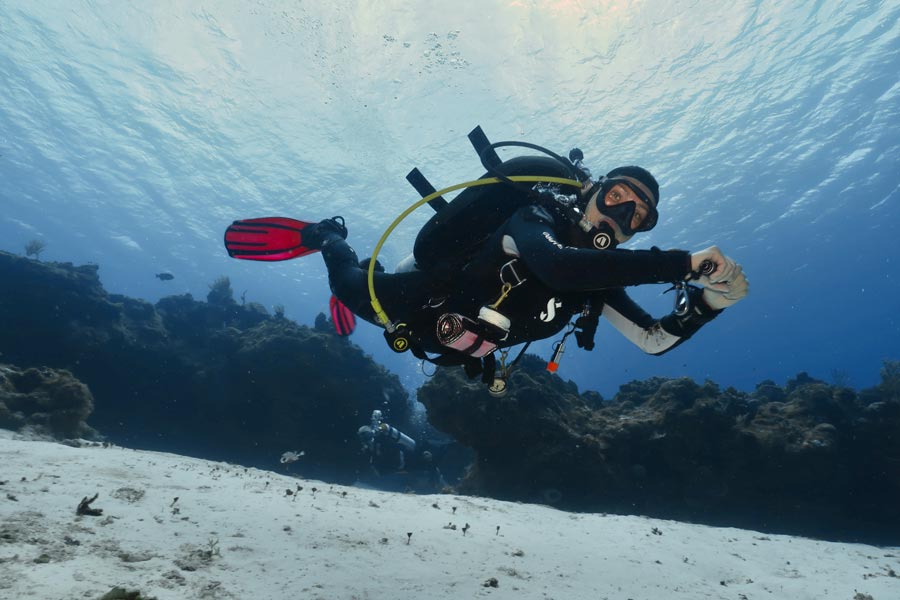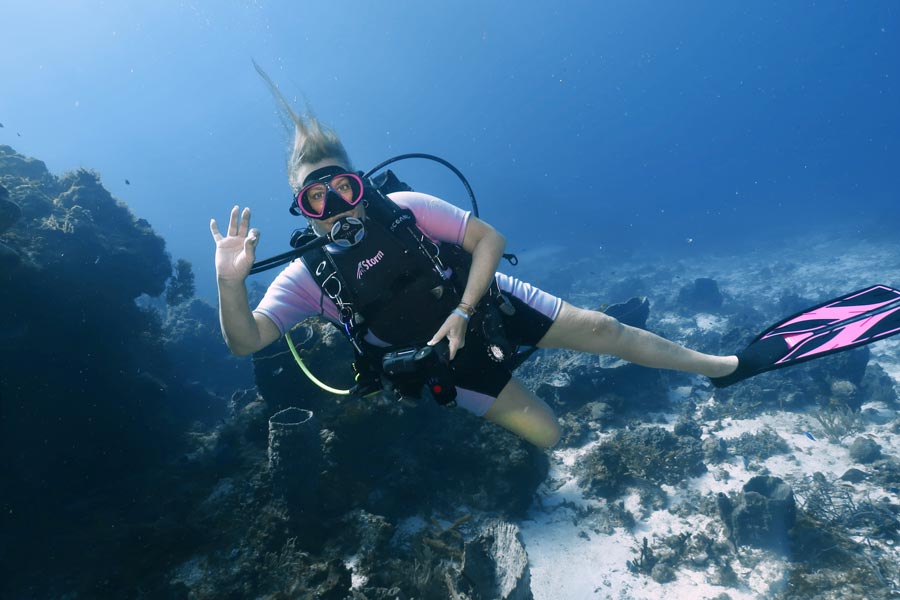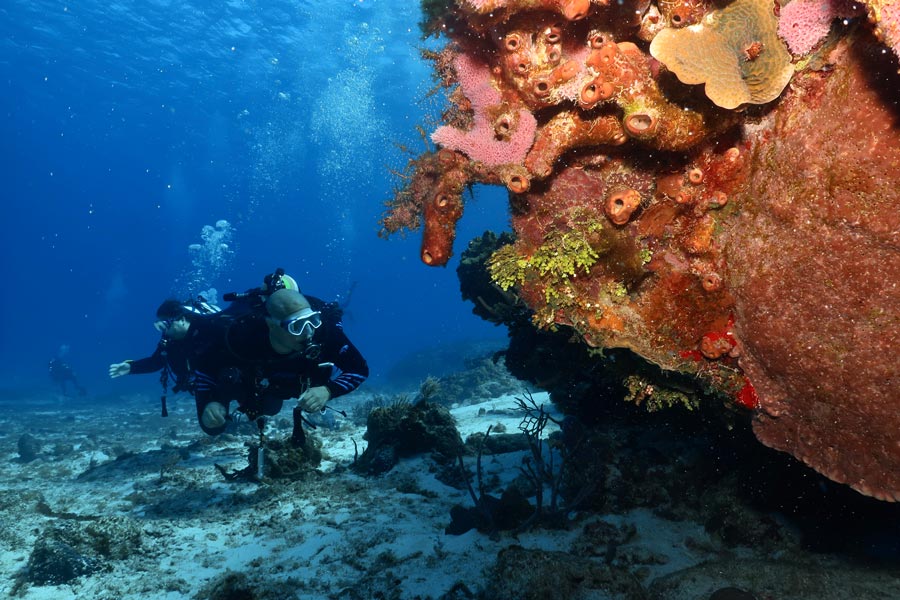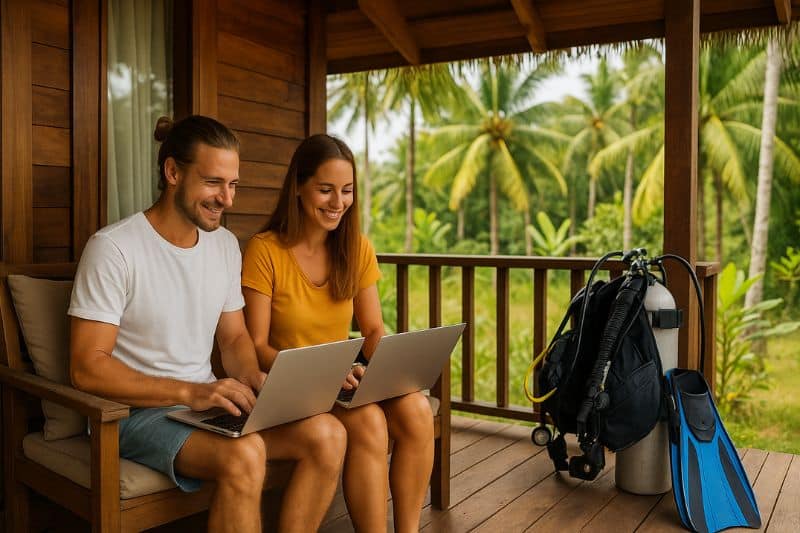7. Next Steps: Advanced Certifications and How to Become a Scuba Diving Instructor
You’re already a certified diver, and little by little, you’ve gained the experience to know how to scuba dive better and safer. Congratulations! So, what’s next?
Alex, who once had doubts about how to get certified in diving, now that he has, wants more. He’s discovered that the world of diving has no limits. His new goal? Become an instructor and help others discover the ocean.
Here’s how to get there:
- Advanced Certifications. After the basic course, the next step is the Advanced Open Water Diver course, where you’ll refine skills like deep diving or underwater navigation. You can also add specialties like underwater photography or wreck diving.
- First Aid. Being an instructor means being prepared for emergencies. You’ll need to complete the Rescue Diver course and the Emergency First Response (EFR) course.
- Divemaster. This is the first professional level. As a Divemaster, you can lead dives and assist instructors during courses. It’s the key step if you want to know how to become a scuba diving instructor.
- Scuba Diving Instructor. Finally, you’ll need to complete the Instructor Development Course (IDC) and pass the required exams. This is where casual divers become passionate professionals.
Alex already sees his future: teaching others, living by the sea, and turning his passion into a career. If you dream of this too, start with a simple step: find out how to become a scuba diving instructor and map out your path. The ocean always has room for those eager to be inspired. Interested in learning how to become a scuba diving instructor for free? Check out our internship program.
8.FAQs: How to Scuba Dive with Dressel Divers
What diving courses are available for beginners who want to learn how to scuba dive?
If you have no prior diving experience, you have several options to start your adventure.
- The most popular course is Open Water Diver, which certifies you as an independent diver and allows you to dive anywhere in the world with a buddy. This certification is valid for life.
- Another option is the Scuba Diver course, which also gives you a certification but only allows you to dive under the supervision of a Divemaster or professional diver. This option lets you explore the underwater world at shallower depths.
- If you’re not ready to get certified yet, you can try the Discover Scuba Diver (DSD) course, which allows you to experience diving for the first time, learning the basics and doing a dive under the supervision of an instructor. This course doesn’t give you a certification but is a great way to get a taste of the diving world.
Which agencies will teach me how to scuba dive if I book with Dressel Divers?
When you get your recreational diving certification with Dressel Divers, we mainly certify through SDI and PADI.
Which Dressel Divers bases offer Open Water or Advanced Open Water certifications?
You can get both certifications at all Dressel Divers bases, whether in Playa del Carmen, Cozumel, Puerto Aventuras, Puerto Vallarta, Bayahibe, Punta Cana, Montego Bay, or Mallorca. We’re present in all four countries where we operate, so no matter which diving destination you choose, you can get certified with us without any issues.
What is the minimum age to learn how to scuba dive?
The minimum age for Jr Open Water Diver, Jr Scuba Diver, and Discover Scuba Diver courses is 10 years old. However, for younger children, the Bubblemaker program is available for kids starting at 8 years old, letting them enjoy the experience of diving in shallow waters.
Is it necessary to know how to swim to learn how to scuba dive?
Yes, being able to swim is a requirement for getting the Open Water Diver certification. Candidates need to pass a swim test consisting of swimming 200 meters and floating for 10 minutes in the pool without diving equipment.
Is diving equipment provided during the course, or do I need to buy or rent it?
For the Open Water Diver, Jr Open Water Diver, Scuba Diver, Jr Scuba Diver, Referral, and Discover Scuba Diver (DSD) courses, diving equipment use is included. Just bring your enthusiasm and readiness to learn how to scuba dive!
How much time should I wait between different levels of scuba certification?
There’s no need to wait between certifications. You can obtain one after another as long as you meet the requirements in terms of the number of dives and age.
Is it possible to take different level diving courses at different tourist destinations?
Of course! You can take your course wherever you like. You can even complete part of the course at one dive center and finish it at another (Referral), giving you the flexibility to learn how to scuba dive in exotic locations.
Can I learn how to scuba dive online?
With Dressel Divers, you have both options. You can choose the modality that best suits you, with the theoretical part of the course available online, while the dives must be completed in person to ensure you learn how to scuba dive safely and practically.
Want to learn how to scuba dive while having unforgettable experiences? Ready to dive in? What are you waiting for? Write to us now!




